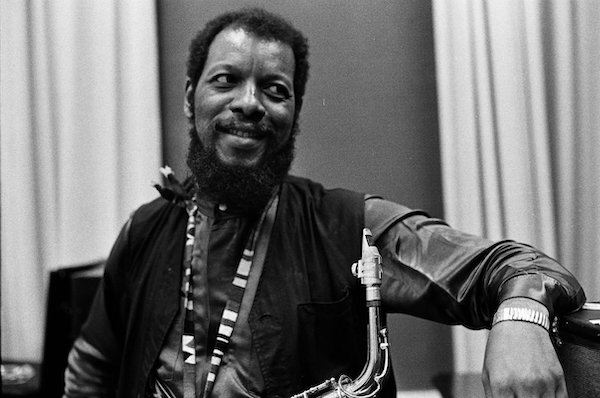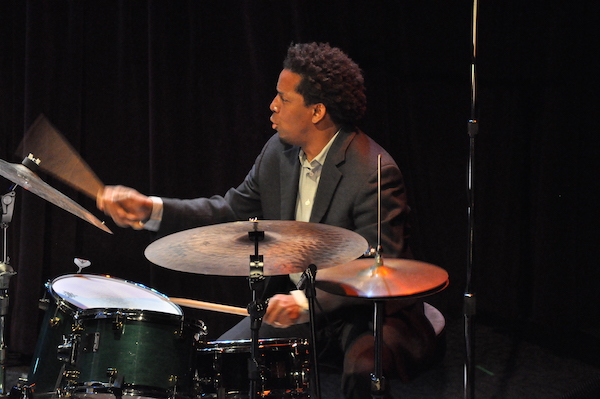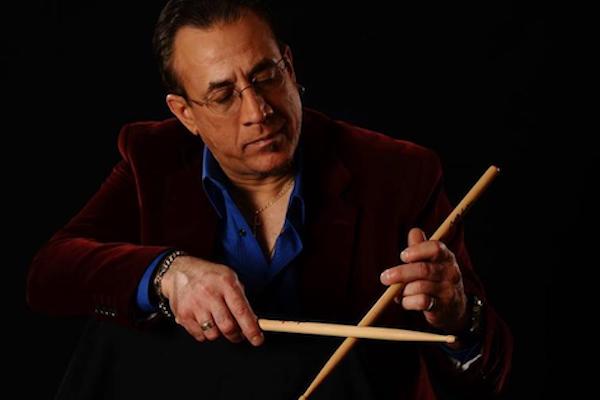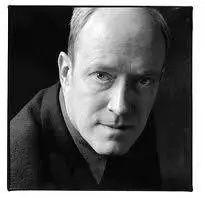Looking Back at the Francis Davis Jazz Poll: Winners 2006-2022 and Memoirs of a Pollwatcher
There exists a worldwide community of journalists and critics who depend on each other to keep tabs on the ever-expanding universe of jazz and it’s more-or-less-affiliated fringes and fusions, and this poll is one of our most effective — and most anticipated — resources.

Ornette Coleman
The Francis Davis Jazz Poll: Winners 2006-2022
New Album winners (parenthetical number is margin over 2nd place finisher):
2006: Ornette Coleman, Sound Grammar (Sound Grammar) (+112%)
2007: Maria Schneider, Sky Blue (ArtistShare) (42)
2008: Sonny Rollins, Road Shows, Vol. 1 (Doxy/Emarcy) (76)
2009: Vijay Iyer, Historicity (ACT) (18)
2010: Jason Moran, Ten (Blue Note) (45)
2011: Sonny Rollins, Road Shows, Vol. 2 (Doxy/Emarcy) (29)
2012: Vijay Iyer, Accelerando (ACT) (13)
2013: Wayne Shorter, Without a Net (Blue Note) (118)
2014: Steve Lehman, Mise en Abime (Pi) (5)
2015: Rudresh Mahanthappa, Bird Calls (ACT) (0)*
2016: Henry Threadgill, Old Locks and Irregular Verbs (Pi) (11)
2017: Vijay Iyer, Far From Over (ECM) (67)
2018: Wayne Shorter Quartet, Emanon (Blue Note) (11)
2019: Kris Davis, Diatom Ribbons (Pyroclastic) (41)
2020: Maria Schneider, Data Lords (ArtistShare) (74)
2021: James Brandon Lewis, Jesup Wagon (TAO Forms) (73)
2022: Mary Halvorson, Amaryllis (Nonesuch) (59)
*Tied at 350 points with Maria Schneider, The Thompson Fields (ArtistShare), but won tie-breaker 53 votes to 49.
While Coleman, Rollins, and Shorter were established stars by the early 1960s, the only other musician on this list whose discography predates 1992 is Threadgill. Four more made their debuts in the 1990s: Schneider (1992), Iyer (1995), Mahanthappa (1997), and Moran (1999), with the other four only appearing after 2000 (Lehman, Davis, Lewis, Halvorson). None of those eight were over 50 when they won their first poll, and five were under 40 (Iyer, Moran, Lehman, Davis, and Lewis, with Moran the youngest at 35).
Other artists who appeared in the top five more than once: five times: Charles Lloyd; four times: Ambrose Akinmusire, Wadada Leo Smith; three times: Joe Lovano, Craig Taborn, Tyshawn Sorey; twice: Steve Coleman, Cécile McLorin Salvant.
Rara Avis (Reissues/Historical, or just Reissues to 2014) winners:
2006: Charles Mingus, At UCLA 1965 (CME/Sunnyside) (+20%)
2007: Miles Davis, The Complete “On the Corner” Sessions (Columbia/Legacy) (165)
2008: Anthony Braxton, The Complete Arista Recordings of Anthony Braxton (Mosaic) (235)
2009: Louis Armstrong, The Complete Louis Armstrong Decca Recordings (1935-1946) (Mosaic) (10)
2010: Henry Threadgill: The Complete Novus and Columbia Recordings (Mosaic) (57)
2011: Miles Davis, Live in Europe: The Bootleg Series Volume 1 (Columbia/Legacy) (20)
2012: Charles Mingus, The Jazz Workshop Concerts: 1964-65 (Mosaic) (91)
2013: Miles Davis, Live in Europe 1969: The Bootleg Series Vol. 2 (Columbia/Legacy) (103)
2014: John Coltrane, Offering: Live at Temple University (Impulse/Resonance) (104)
2015: Miles Davis, At Newport 1955-1975: The Bootleg Series Vol. 4 (Columbia/Legacy) (12)
2016: Larry Young, In Paris: The ORTF Recordings (Resonance) (18)
2017: Thelonious Monk, Les Liaisons Dangereuses 1960 (Sam/Saga) (163)
2018: John Coltrane, Both Directions at Once: The Lost Album (Impulse!) (212)
2019: Eric Dolphy, Musical Prophet: The Expanded 1963 New York Studio Sessions (Resonance ’18) (40)
2020: Thelonious Monk, Palo Alto (1968, Impulse) (20)
2021: John Coltrane, A Love Supreme: Live in Seattle (1965, Impulse!) (149)
2022: Cecil Taylor, The Complete, Legendary, Live Return Concert: The Town Hall, NYC November 4, 1973 (Oblivion) (5)
Debut winners:

Drummer Francisco Mela
2006: Francisco Mela, Melao (Ayva) (+200%)
2007: Tyshawn Sorey, That/Not (Firehouse 12) (267)
2008: Noah Preminger, Dry Bridge Road (NOWT) (60)
2009: Darcy James Argue’s Secret Society, Infernal Machines (New Amsterdam) (144)
2010: Lisa Mezzacappa, What Is Known (Clean Feed) + Gregory Porter, Water (Motema) (tie)
2011: Chris Dingman, Waking Dreams (Between Worlds) (50)
2012: Ryan Truesdell, Centennial: Newly Discovered Works of Gil Evans (ArtistShare) (620)
2013: Jonathan Finlayson, Moment & the Message (Pi) (82)
2014: Jeff Ballard, Time’s Travels (Okeh) (100)
2015: Kamasi Washington, The Epic (Brainfeeder) (514)
2016: Earprint, Earprint (Endectomorph) + Victor Gould, Clockwork (Fresh Sound/New Talent) + Ron Stabinsky, Free for One (Hot Cup) (tie)
2017: Jaimie Branch, Fly or Die (International Anthem) (71)
2018: Justin Brown, Nyeusi (Biophilia) (14)
2019: Joel Ross, KingMaker (Blue Note) (250)
2020: Immanuel Wilkins, Omega (Blue Note) (356)
2021: Patricia Brennan, Maquishti (Valley of Search) (91)
2022: Zoh Amba, O, Sun (Tzadik) (9)
Obviously, no multiple winners here. Truesdell and Washington both finished fourth, the highest of any debut. Sorey and Wilkins are the only ones to have later top-five albums.
Latin Jazz winners (category new in 2007):

Drummer Bobby Sanabria
2007: Bobby Sanabria, Urban Folktales (Jazzheads) (267)
2008: Bebo Valdés & Javier Colina, Live at the Village Vanguard (Calle 54 Norté) (13)
2009: Miguel Zenón, Esta Plena (Marsalis Music) (360)
2010: Chucho Valdes, Chucho’s Steps (Four Quarters) (31)
2011: Miguel Zenón, Alma Adentro: A Puerto Rican Songbook (Marsalis Music) (133)
2012: Bobby Sanabria, Multiverse (Jazzheads) (22)
2013: Michele Rosewoman, 30 Years: A Musical Celebration of Cuba in America (Advance Dance Disques) (46)
2014: Arturo O’Farrill, The Offense of the Drum (Motéma) (19)
2015: Arturo O’Farrill, Cuba: The Conversation Continues (Motéma) (486)
2016: Pedrito Martinez, Habana Dreams (Motéma) (11)
2017: Miguel Zenón, Tipico (Miel) (91)
2018: David Virelles, Igbó Alákorin (The Singer’s Grove), Vol. I & II (Pi) (62)
2019: Miguel Zenón, Sonero: The Music of Ismael Rivera (92)
2020: Arturo O’Farrill, Four Questions (Zoho) (64)
2021: Miguel Zenón & Luis Perdomo, El Arte Del Bolero (Miel Music) (10)
2022: Miguel Zenón, Música de Las Américas (Miel Music) (413)
Zenón has won six times, O’Farrill three times, Sanabria twice. Zenón is the only winner here to have placed in the top five (2011).
Vocal winners:

Vocalist Nancy King
2006: Nancy King, Live at Jazz Standard with Fred Hersch (MaxJazz) (33)
2007: Dee Dee Bridgewater, Red Earth (EmArcy) + Abbey Lincoln, Abbey Sings Abbey (Verve) (tie)
2008: Cassandra Wilson, Loverly (Blue Note) (180)
2009: Gretchen Parlato, In a Dream (ObliqSound) (22)
2010: Cassandra Wilson: Silver Pony (Blue Note) (57)
2011: Gretchen Parlato, The Lost and Found (ObliqSound) (60)
2012: Neneh Cherry & The Thing, The Cherry Thing (Smalltown Superjazz) (36)
2013: Cécile McLorin Salvant, WomanChild (Mack Avenue) (107)
2014: Andy Bey, Pages From an Imaginary Life (HighNote) (160)
2015: Cécile McLorin Salvant, For One to Love (Mack Avenue) (17)
2016: René Marie, Sound of Red (Motéma) (11)
2017: Cécile McLorin Salvant, Dreams and Daggers (Mack Avenue) (119)
2018: Cécile McLorin Salvant, The Window (Mack Avenue) (443)
2019: Jazzmeia Horn, Love and Liberation (Concord) (33)
2020: Sara Serpa, Recognition (Biophilia) (8)
2021: Veronica Swift, This Bitter Earth (Mack Avenue) (89)
2022: Cécile McLorin Salvant, Ghost Song (Nonesuch) (342)
Salvant has won five times, Wilson twice. Salvant is the only one to have placed in the top five (2013 and 2022).
— compiled by Tom Hull
Memoirs of a Pollwatcher

Jazz critic Francis Davis
As a teenage high school dropout in Wichita, I was fascinated by New York City as a distant cultural beacon, and so I became a subscriber to the Village Voice. At the time, I was more interested in poetry and way-off-Broadway theater, but over the next few years my attention turned increasingly to music. Robert Christgau had started at the Voice in 1969, left for a couple years at Newsday, then returned as music editor in 1974. Drawing on critics who had surfaced in magazines like Rolling Stone and Creem, as well as discovering many of his own (including this Kansan), he built his section into one that was read all across the nation, allowing him to joke that he had become the Dean of American Rock Critics. But the section covered more than just rock, with regular columnists Gary Giddins on jazz, Leighton Kerner on classical, and Tom Johnson on avant-minimalism (or whatever you call it).
Giddins started at the Voice in 1973, before Christgau returned, and covered the jazz beat until 2003, by which time he was probably the most famous jazz critic in America. He was, for instance, the one Clint Eastwood consulted when he filmed Bird, and the one Ken Burns featured in his 10-part Jazz series. He had published a half-dozen books, including the first volume of his definitive biography of Bing Crosby. Despite such acclaim, the Voice never gave Giddins a full-time job. Christgau, who had moved from music editor to senior editor in 1980, had edited Giddins throughout his tenure, and lately had taken over editing all of the Voice‘s jazz coverage — even inviting me to write occasional pieces. Giddins’s departure left him with a huge hole to fill.
Pretty much everyone agreed that the obvious replacement was Francis Davis. He had filled in when Giddins took time off to work on a book in the late 1980s, and made a big impression on me for his ability to find remarkable artists I had never heard of (two examples are Allen Lowe and Myra Melford — prominent now but not in 1990). So I wasn’t surprised when Christgau picked Davis to fill in, or when he decided to add Nate Chinen to cover live events that Davis, based in Philadelphia, couldn’t get to.
What did surprise was when Christgau asked me to write a Jazz Consumer Guide to round out the mix. Christgau had invented the format in 1969, and made it his signature, producing one nearly every month since. He also encouraged other Voice writers to follow suit: the most regular were Kerner and Kyle Gann (who followed Johnson), although Giddins and Davis wrote a couple on jazz, and Stanley Crouch turned in one. I wound up writing roughly four per year, all the way to 2010, and have continued the format on my website ever since.
The Voice‘s post-Giddins jazz coverage lived up to the previous standards, at least until Phoenix-based New Times Media bought the paper and started “cleaning house”: music editor Chuck Eddy was replaced by Rob Harvilla in 2005, and Christgau was fired in 2006. Recognizing the importance of jazz in the Voice‘s music coverage, Harvilla managed to keep Davis and me writing — a struggle, given increasing pressure to reduce space and cut costs, which ended with Harvilla’s own departure in 2010.

Jazz writer Tom Hull — in 2013 he took over the compilation of the Poll’s ballots.
Publishing a year-end wrap-up is standard pretty much everywhere. From 2004 to 2010, I wrote up a year-end list, which the Voice would run as a sidebar to Davis’s feature piece. (I relished the opportunity, not least because it was the only time I made a decent hourly return on my writing.) In 2006, in the unsettled atmosphere after Christgau had been fired, Davis proposed to run a poll of New York critics to accompany his piece. Polls were big business at the Voice: J. Hoberman ran a film critics poll, but the big one was Christgau’s Pazz & Jop, founded in 1971 and annually since 1974. It had grown over the years to special issue status, with 795 voters in 2005, and continued until the Voice went out of business.
Harvilla approved, and Davis collected 30 ballots that year for what he called the “Village Voice NY-and-Then-Some Jazz Critics’ Circle Poll.” His point system was simplified compared to P&J: 10 records were accorded 10-to-1 points by rank, and unranked lists of 10 records were each given 5.5 points. He also had a Reissues category, with the top three scored 3-to-1, and separate lists for Vocal and Debut (one pick each). In 2007, he added Latin Jazz.
The 2006 winner, in a landslide that has only been matched once since, was Ornette Coleman’s Sound Grammar. Maria Schneider won the next year for Sky Blue, competing with a Charles Mingus vault tape from 1964. Then Sonny Rollins’s Road Shows, Vol. 1 won easily in 2008. The rule at the time was that anything previously unreleased, regardless of vintage, was considered New. That allowed Rollins to win again in 2011 with Road Shows, Vol. 2. The definition was eventually changed, expanding Reissues/Historical (or, as Davis preferred, Rara Avis) to include any album recorded 10 or more years ago. This ended the jockeying back and forth between truly contemporary albums and salvaged classics. In later years, these included Coltrane’s Both Directions at Once (2018), Monk’s Palo Alto (2020), and Coltrane’s A Love Supreme: Live in Seattle (2021) — all easy winners in Rara Avis, most with more votes than the New Releases winners.
Davis continued to run annual jazz critics polls at the Voice through 2010, after which Harvilla was replaced by Maura Johnston, and space became so difficult to obtain that both of us departed. That might have been the end of it, but Davis felt the Poll was worth keeping alive, so he sought out a new sponsor. (Unlike Pazz & Jop, the Voice had no further interest in it.) In the meantime, Harvilla had landed a job at Rhapsody’s music streaming service, and they published the poll for 2011-12.
One of Davis’s requirements for the poll was that the full ballots of every critic be made available. The Voice had written some sophisticated software to do that for Pazz & Jop, but no effort was made to adapt it to Davis’s poll. By the fourth poll, in 2009, the voter list had expanded to 99, and both print space and web support had become difficult, so Harvilla proposed that I publish the ballots on a web server I had leased. Before that, my only involvement had been to vote and to publish a sidebar piece. From 2009 on, regardless of where the results and essays were published, I took responsibility for making the ballots public, which from 2010 on also entailed checking the results and posting full tables (in 2010, 411 new albums received votes on 120 ballots).
In 2013, Davis found a new outlet for the poll at NPR Music, where it remained through 2020. NPR was relatively generous, even making a little money available for a few third-party reviews, as well as my ballot work. At some point along the way, I took over the compilation of the ballots. I wrote some software to aid in that task, and that allowed me to catch and correct errors on the fly, instead of waiting until Davis dumped the final results in my lap a day or two after voting closed. The more efficient workflow helped as the electorate grew toward 150 voters.
Toward the end of 2021, NPR decided to drop the poll, for reasons I don’t fully understand. Francis Davis was recovering from serious illness, and doubted whether the poll could continue, especially without a sponsor. But the question mostly came down to whether I would be willing to step in and pick up the slack. I had little else going on at the time, so figured why not? I was well equipped to compile the ballots, and could host the whole thing on my server — an option which became secondary when the Arts Fuse stepped in. The main extra work for me was communicating directly with the voters. I also published a fairly long essay on how the poll worked and how its various factors influenced the results.
The situation this year is not that different. Davis initially asked me to take the poll over, which I’ve done. I sent out the invites, handled the correspondence, adjudicated disputes, counted the ballots, and despite a delay caused by an illness, I’m getting the package wrapped up a week or so later than originally expected. Despite his handoff of what he likes to call “the heavy lifting,” rest assured that Davis has merely receded into the background, keeping a watchful eye over the proceedings.
With 151 voters, we almost matched 2021’s record 156. That still gives us bragging rights for hosting the biggest poll in jazz — also, I suspect, the most diverse and comprehensive poll in jazz. I’ve tried to keep it true to Davis’s design and vision, and especially to his sense that we constitute a growing circle of knowledge and appreciation of this universal language of music. Accordingly, the one big change this year is that, following the lead of several voters, we should formally recognize what we’ve understood all along: this should be known as the [17th Annual] Francis Davis Jazz Poll.
Having overcome all these obstacles, I wish I could predict clear sailing ahead for the Poll, but I’m only a couple years younger than Davis, and it strains my diminished capabilities. On the other hand, this year has only reaffirmed my sense that there exists a worldwide community of journalists and critics who depend on each other to keep tabs on the ever-expanding universe of jazz and its more-or-less-affiliated fringes and fusions, and that this poll is one of our most effective — and most anticipated — resources. I know, for instance, that even having reviewed over 800 new jazz albums in 2022, about 20 percent of the albums receiving votes this year are ones I hadn’t heard, and a dozen or so of those wound up making my A-list (with more, no doubt, to follow).
If we do fail to continue — and despite a couple of rough years, Davis shouldn’t be counted out; nor, I suppose, should I — demand for this service is such that others will rise to the occasion, much as there are several post-Christgau, post-Voice Pazz & Jop successors. Despite the temptation to dismiss end-of-year lists as hack clickbait, and to view polls as a marketing gimmick, they offer a first opportunity to stop and take stock, and provide both abundant details and, by aggregating the individual lists, useful data. In a world that has grown way beyond our ability to grasp it in real time, that makes this Poll an invaluable tool for understanding.
— Tom Hull
Tagged: Jazz Poll, The 17th Annual Francis Davis Jazz Poll

Ok, so an essay much about Village Voice jazz and music coverage, with absolutely no mention of the late Greg Tate’s powerfully influential contributions? As we say Ain’t But a Few of Us!
Peace,
Willard Jenkins